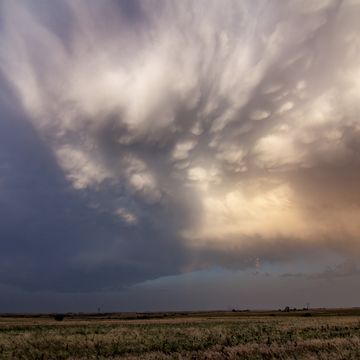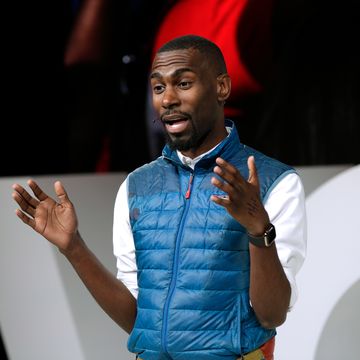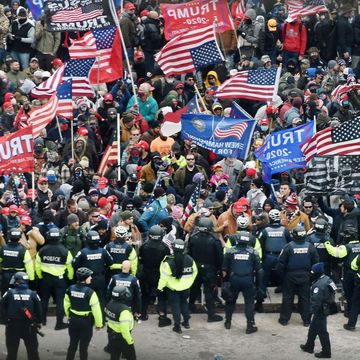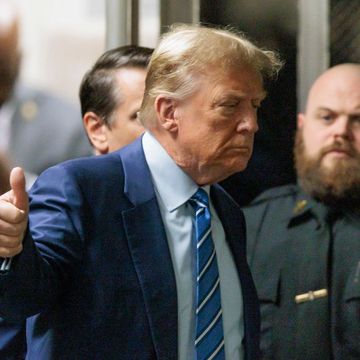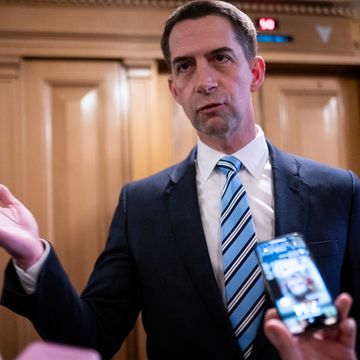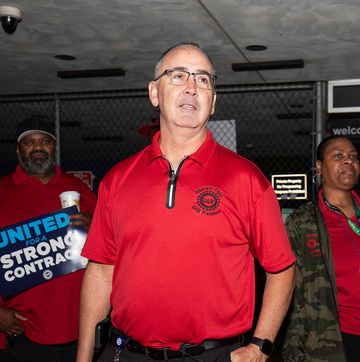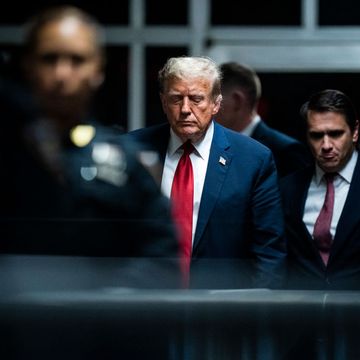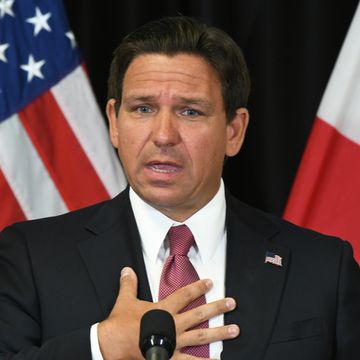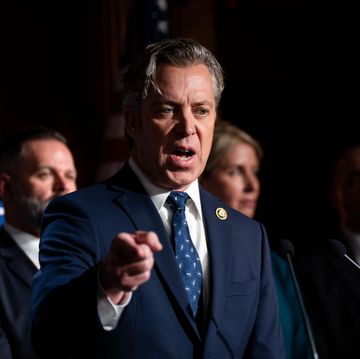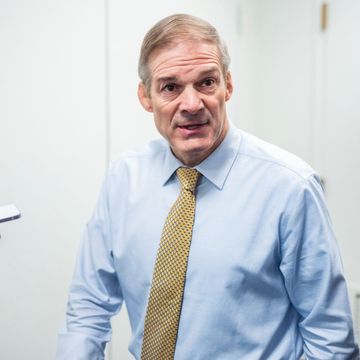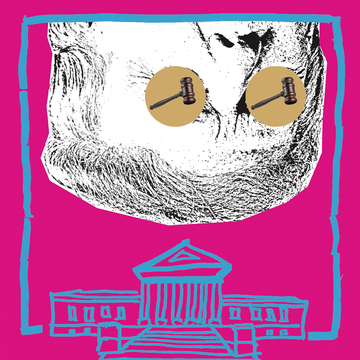Street artist Shepard Fairey and MTV, home to teen moms and teen wolves, are the Felix and Oscar of American culture wars. That they found common ground is something of a triumph. Their web series, Rebel Music, now in its second season, spotlights creative young people who express themselves in a dismissive world. From Iranian metal heads to Native American DJ environmentalists, Rebel Music encompasses the punk art gamut. When he first announced the show, Fairey, the executive producer, explained that Rebel Music "mirrors the approach and philosophy I've embraced throughout my entire career—art as a catalyst for social change." And by making episodes available online, the graphic remixer hopes to expedite that chemical reaction. Roll your eyes why-don't-they-play-music-on-MTV-anymore criers, but if you want to reach young people, that's the avenue.
Esquire caught up with Fairey to talk Rebel Music, his own pursuits—he still cranks out posters, screen prints, Andre the Giant OBEY stickers, and 185-foot murals—and how the political world affects artists young and old. And since his Barack Obama "Hope" poster all but defined the 2008 Election, we decided to ask how that panned out and if anything's cooking for 2016. Short answer: He's not too happy with politics in general.
You grew up in Charleston, South Carolina in the late '70s and early '80s. How different would your artistic experience have been if you emerged from, say, Myanmar in 2015?
Art making comes from that human desire to share something that is universal in one sense, but unique to your sensibility in another. I think that, wherever you are in the world, that impulse exists within human beings. I am very, very aware of the privilege that I had to make art about things that it's hard to make art about in other countries. When I was 14 years old, I was into punk rock—The Clash, The Dead Kennedys—and skateboarding. The idea that I could make a sticker that said, "Stop the Arms Race Not the Human Race" and put it on my dad's car and not get hauled off to a prison camp... that's a privilege that we have in the Untied States. So what I love about Rebel Music is that there are people who are driven by the same impulses but with a very acute awareness of the potential consequences. They have the courage.
I've done a lot of things for people with the ACLU and other progressive organizations. What I am always trying to put across is that, when you have free speech and the ability to have a discourse about challenging things, you better exercise it. Because when the voices that are presenting counterpoints to things like [George W.] Bush's "you're either with us or with the terrorists" erode, all of a sudden you realize that making art becomes a risky thing. So I think that giving people perspective on what's going on in America, along with what's going on in these other places where it's risky to make art, creates a sense of compassion in people because you're not just getting the broad strokes from the news, you're seeing things firsthand.
If you are creative in the Western world and you're squandering your creativity to make things that are decorative or just about fashion, then maybe the show'll motivate you to do something with a bit more meaning. I'm not telling artists what they should do or how they should do it, but I think that there are things that we're able to take from granted in the West that I'd like to see not be so taken for granted. My history with art is discovering what Bob Marley, The Clash, [Bob] Dylan, Public Enemy, and Rage Against the Machine were doing mostly through music ,and then visual artists like Robbie Conal, who did the Reagan with the contradiction, and in the '80s Barbara Kruger, who did a lot of the Vietnam War protest posters. I considered it the visual art equivalent of a lot of the music that moved me, because lyrically it was outspoken. There are even people that were very direct like Winston Smith with what he did for The Dead Kennedys or what Jamie Reid did for the Sex Pistols or what Raymond Pettibon did for Black Flag. The coupling of art and music and ideas to me was better than any one of those things individually.
You're very aware of your influences. And I've seen you talk about forging brand recognition through motifs and iconography. Do you see that as a musical experience? Bands and performers are often content to spend their careers digging deeper into their sound.
It's funny that you would say that, because I relate to how someone can recognize Johnny Ramone's guitar sound right way, or Neil Young's harmonica. I mean, these things that become really associated in a profound way with music, that is super exciting to me. For me, the idea of consistency, of signature elements wasn't consciously motivated by emulating musicians. It was based on the idea that, as an individual with limited resources, I could not do eighteen story murals when I started out. The impact of my work had to be based on a cumulative effect, and repetition works. I have made literally millions of OBEY stickers and put them around. It wasn't reliant on one individual piece being large-scale or a masterpiece. The Ramones put out a record every ten months. How prolific a lot of people were within punk rock, how it was about not overthinking it, that's a model that I've emulated. And I do think those instincts serve people well, especially when they're doing something that is a response to social variables happening around them. You do need to respond in the moment. So that's another thing about Rebel Music that's exciting: A lot of the people seem like they're willing to go out with an acoustic guitar or work off their laptop and deal with things on the fly in a way that is really about adapting to events changing minute by minute.
Expression on any level is an uphill battle for the kids in your show. Is that a shared experience? A symptom of the modern world? Do you still get pushback when mounting your art?
It's a complex moiré of variables. When I first started doing street art, it was a lot easier because it was the late-'90s and a lot of cities were still adapting to this new scourge of graffiti and they were completely overwhelmed and hadn't developed all the techniques to push back. You could get away with it. Now it's a lot harder. I've been arrested seventeen times, and I've been arrested outside the U.S. I've been arrested in Japan, and I've been detained in places like Norway. Art is always challenging, anywhere. It's not something where people go, "Oh, yes, society absolutely needs what you're doing." It takes quite a while to establish yourself to the point where society says, "Yeah, you've become enough of a universal reference point in a positive way that now our cowardice about just how unnecessary art is will give way to how important you are culturally." Very few people actually get to that level.
You designed the Obama "Hope" poster out of frustration over the Bush Administration. What's got you mad now? Who will get Shepard Fairey's support in 2016?
There's always a lot that's making me angry, but [it won't] tie into the election. I mean nothing against Hilary [Clinton]. I agree with Hilary on most issues, but campaign finance structure makes me very angry, because it means that politicians are going to have to raise a huge amount of money, which narrows the field dramatically. There are only certain kinds of people that either have the preexisting resources or the willingness to work in way that will get them a lot of money from donors. That narrows the field right there. Then there's the idea that the people who you are going to have to listen to are the people that are going to give you the biggest donation. That means lobbyists, special interest groups, and corporations are going to have politicians eager, disproportionally. And there are so, so many different problems, whether it's income [inequality], gun regulation, or climate change. Anything that affects what I would call the common good or common assets is not about just the top of the capitalist pyramid is affected by campaign finance structure. You know, the thing I'm really worried about is climate change. Go through my archive and there's a ton of stuff about the power of the oil and gas industries, climate change, campaign finance, you know, just other forms of environmental destruction. It almost all relates to corporations coming before people. You know, I was a big supporter of the Occupy movement, and I'm not anti-capitalism. Capitalism just needs better referees.
Do you think Obama has lived up to your "Hope" poster?
Not even close.
How come?
Obama has had a really tough time, but there have been a lot of things that he's compromised on that I never would have expected. I mean, drones and domestic spying are the last things I would have thought [he'd support]. I've met Obama a few times, and I think Obama's a quality human being, but I think that he finds himself in a position where your actions are largely dictated by things out of your control. I'm not giving him a pass for not being more courageous, but I do think the entire system needs an overhaul and taking money out of politics would be a really good first step.
We also need a public that isn't so uneducated and complacent. I hate to say Americans are ignorant and lazy, but a lot of them are ignorant and lazy. It's just like what I was talking about with Rebel Music and art. When you live in a place that has a lot of good things that make life easier, it's easier to take them for granted. But what frustrates me to no end are people who want to blame Obama or blame anything that is something that if they were actually doing anything as simple as voting, it might not be as bad as it is. There's a lot of finger pointing and very little action and very little research into the dynamics that created the situation that they're unhappy about.




